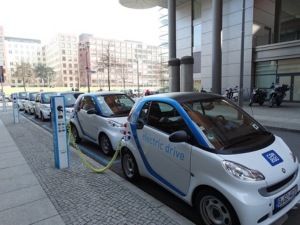News
Large numbers of green cars could lead to electricity shortages
This article is more than 7 years old.
If the government’s ambitions for 1 million electric cars by 2030 become a reality, there might be serious power supply problems after all

How many exactly? (photo: Pixabay/UveX)
Promises made by the PM, Lars Løkke Rasmussen, in his opening speech to Parliament on green energy and electric cars were music to the ears of environmental organisations.
Since then, a number of critics have pointed out that with the funding agreed, the figure of 1 million cars on the roads by 2030 would be hard to attain.
Now, there are also worries about whether the national grid will be able to deliver enough power if this really happens.
READ ALSO: Energy organisation upbeat on increased numbers of electric cars
Spreading the load
At the moment, electricity companies offer cheaper ‘off-peak’ rates to encourage consumers towards ‘greener’ habits. This can be to charge their cars or to power heat pumps to help heat their houses.
However, according to the electricity generator’s branch organisation Dansk Energi, if everyone plugs in their car, turns on the heating and starts cooking at the same time – for instance, when they come home from work – that would cause a spike in power usage that the grid couldn’t handle, reports Politiken.
The only way to avoid massive extra investment in the grid that would have to be paid for by consumers is to spread the load during the day and night period.
READ ALSO: Danes want a lot more political action on electric cars
Helping consumers
“If we want to make this as cheap as possible for every Danish consumer we have to help customers help themselves to avoid these costs,” said deputy director Anders Stouge from Dansk Energi.
“We have to reward customers if, for example, they charge their cars up during the night,” he continued.
During 2020, so-called ‘intelligent meters’ will be installed for all consumers. These can be read remotely and will make it possible to introduce charges dependent on the time of day, as the price of electricity varies.
Dansk Energi has calculated that around 75 percent of the grid that brings power to around 1.1 million suburban houses will not be able to handle the spike potentially caused by 1 million electric cars. Additionally, around half of these houses are still heated by oil or gas and these systems might well be replaced by greener heat pumps, putting further pressure on the network.
More local co-operation
The problem is high on the electricity producer’s agenda. Experiments are taking place to use the batteries of electric cars as buffers in the system during periods where demand is high; power can be taken from the car.
It may also be possible to expand this locally so that people are able to buy power from their neighbour’s solar panels to charge their cars.
Dansk Energi emphasises that it is important to go over to flexible tariffs as soon as intelligent meters have been installed. It will take a little time before the market for flexible electricity consumption works completely as planned.










































